By Ralph Madugu
Issues bothering on the role of the media in disaster management and conflict sensitive reporting dominated discussions at a one-day workshop organized for practicing journalists in Plateau State.
The workshop organized by the North-Central zonal office of the National Emergency Management Agency (NEMA) in collaboration with the Plateau State Council of the Nigeria Union of Journalists (NUJ), had as its theme: “The Role of the Media in Disaster Management.”
Participants were drawn from both government and private owned media outfits including print, electronic and online. It featured paper presentations, questions and answer sessions.
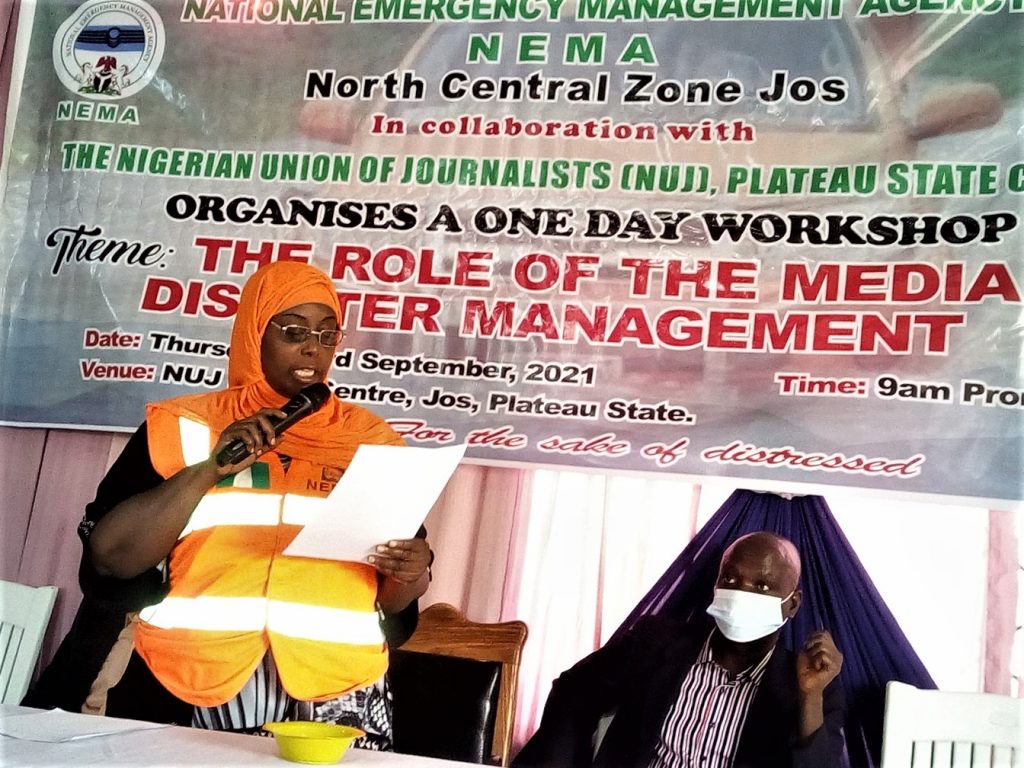
Presenting a paper on Disaster Management in Nigeria and Media Engagement, principal planning officer of NEMA North-Central zone, Belinda Adokwu, said the media has an integral part to play in the disaster management process stating that disaster risk communication is at the heart of disaster management process.
She added that risk communication which includes the means of “transferring relevant information from authorities to public and from risk areas to the authorities.”
Said she: “Through risk communication, it is possible to prevent and mitigate losses and damages from disaster.
“Prepare the population before disasters, disseminate information during disasters and aid subsequent recovery.”
While highlighting some things that reporters need to do at disaster scenes, Adokwu said “You only intervene when first at the scene. If you don’t know how to help, please don’t. If it is not within your capacity. Please don’t,” she stressed.
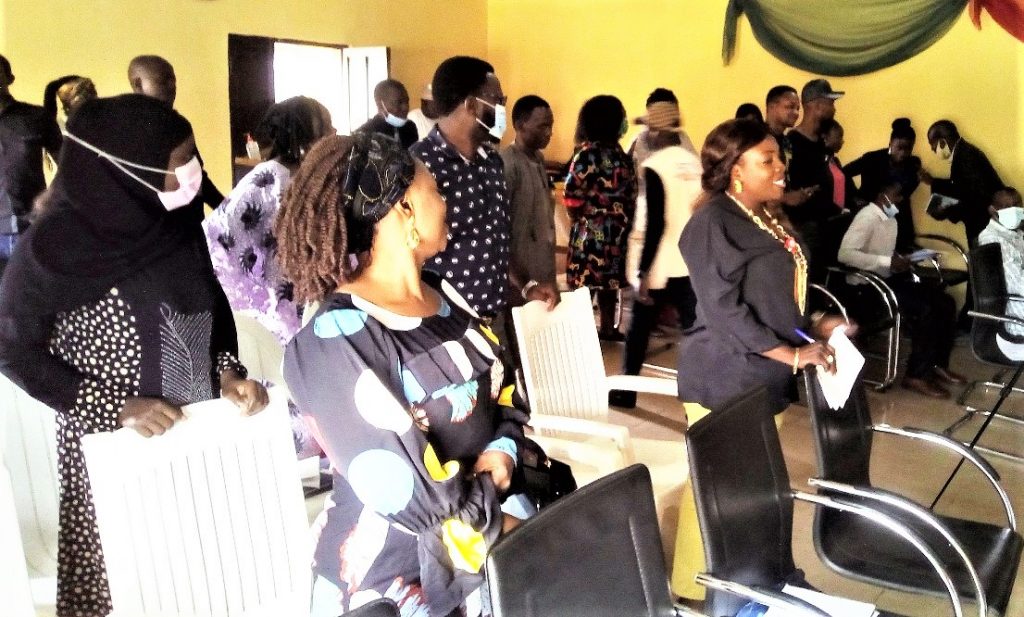
In another presentation on “Conflict Sensitive Reporting,” a former Director of Press and Public Affairs to Plateau State Government, Mr. James Manok, posited that for the media to effectively play their role in reducing conflicts, they must “go beyond just reporting issues from the surface” and “bring salient issues to the fore.”
He added that understanding the underlying issues in a conflict situation is necessary hence journalists should not ignore them.
He stated that the context of the issues journalists reports about them and such context should be of paramount importance to every reporter and cautioned against the practice where journalists report “bare facts” but must put stories within a context.
According to Manok, if journalists must play effective roles in de-escalating conflicts by helping parties to find solutions to conflicts, they must be able to know how the conflict started, which are the actors, their capacities to peace.
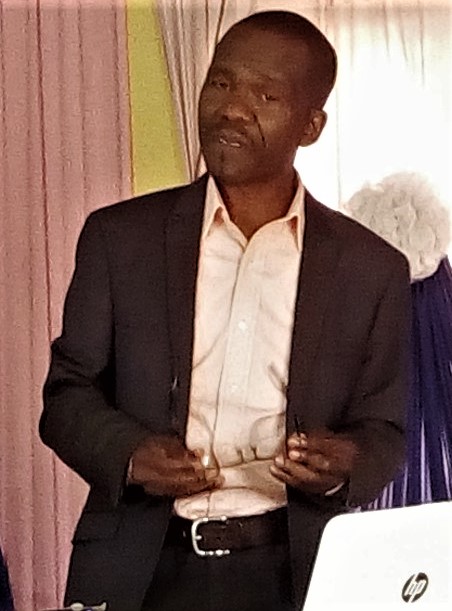
In his remarks, North-Central Coordinator of NEMA, Eugene Nyelong, represented by Hajiya Bintu Wana Aliyu, said it is no longer news that the world continues to shrink as a global village in that, the “impulse of the minutest events get felt almost immediately around the globe no matter where and when they occur.”
According to him, disaster management as a continuous process of administering and coordinating prevention, preparedness, response and relief to victims is every body’s business including NEMA partners; the media therefore there is need for continuous workshop of this nature.
He posited that the media wields such powers as to tell the story as it is to or otherwise thereby shaping perspectives of millions of people leading to divergent reactions.
The NEMA Zonal Coordinator said “This training is to expose or share field experiences and chat an informed way forward for professional management and reportage of disasters or emergencies as the case may be.
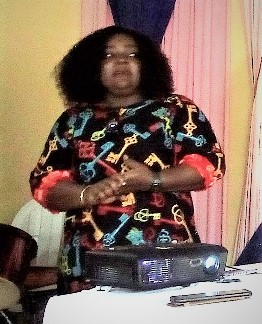
Therefore, there is need for a participatory and broad-based approach in order to increase the scope of disaster management and means of communication and organization in Nigeria and particularly on the Plateau.”
He charged participants thus: “It is on this critical note that I urge you all to take this meeting very seriously and with While urging participants to take the workshop seriously and with every sense of responsibility that the trust bestowed on you as community leaders or volunteer must be justified.”
Earlier in a welcome address Chairman, Plateau State Council of the Nigeria Union of Journalists, Paul Jatau, said the workshop was coming at a very auspicious time as according to him, auspicious in the sense that it will help journalists to know the “nuances of reporting disaster.”
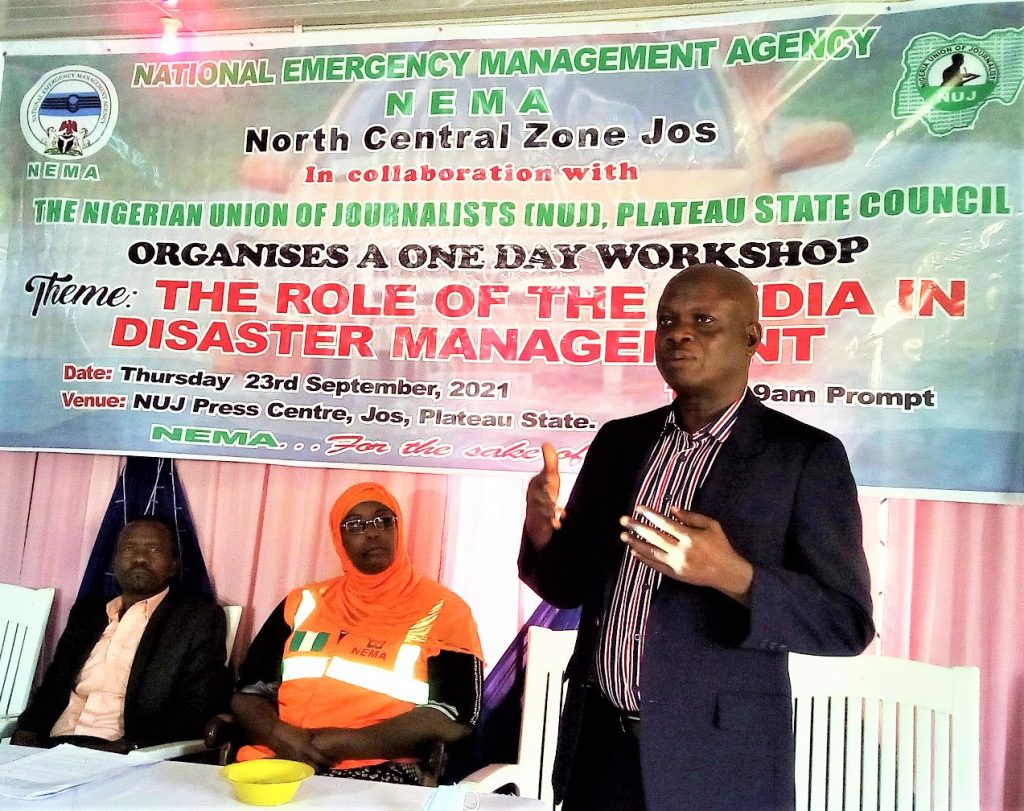
Said he: “To me, collaborations like this will help solve some of the teething problems that we witness when in the field.”
“I hope that by the time we leave here, our grammar and expressions in reportage would have change. We hope that these kinds of engagements will be further strengthen so that it will help our members to report well, know the language to use and the terms to use so as not to mislead people.”
